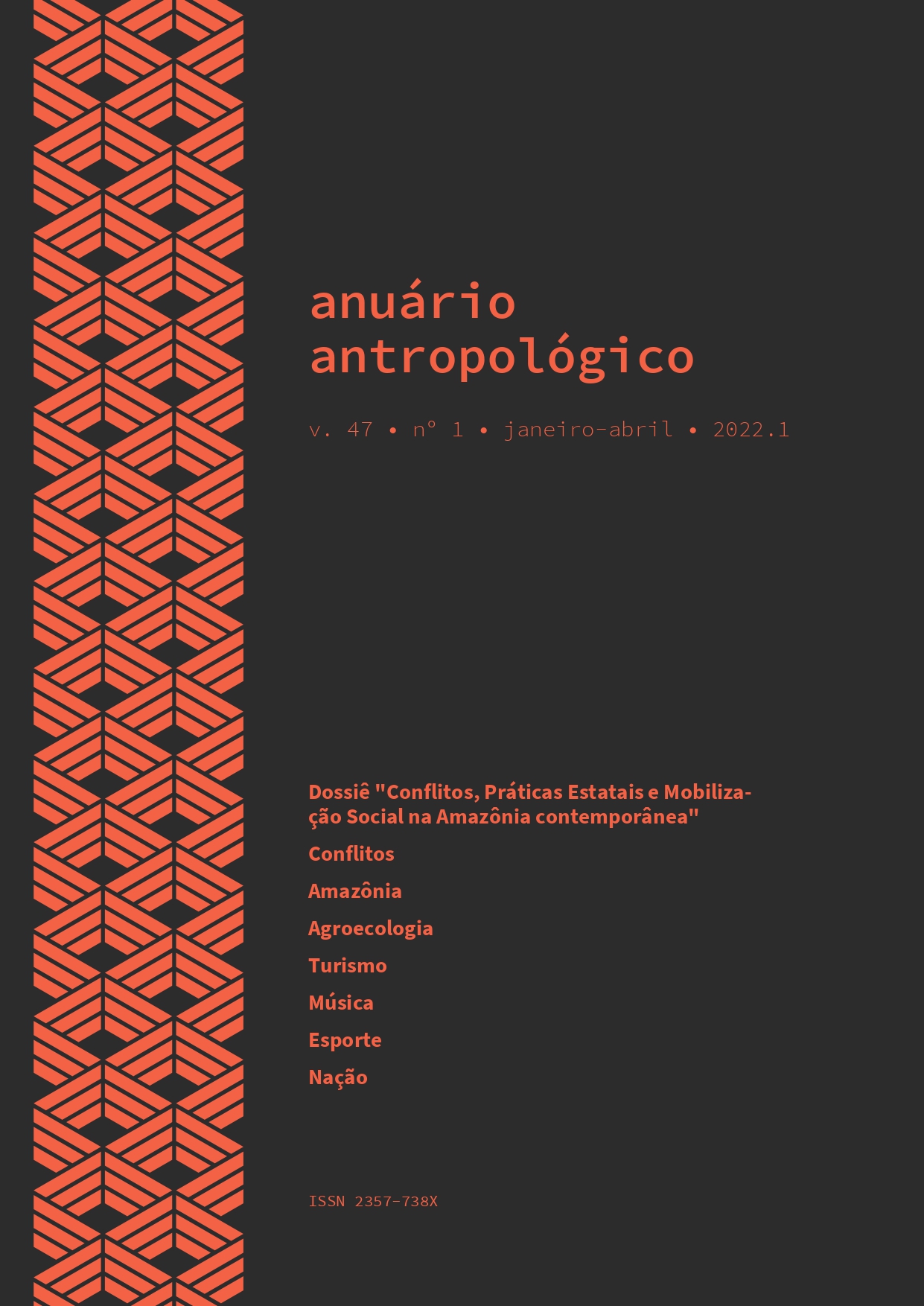Faith in science? How “micro families” viewed the Zika Virus science happen to their children in Recife/PE
DOI:
https://doi.org/10.4000/aa.9478Palavras-chave:
Zika virus pandemic, Recife, Anthropology of ScienceResumo
The Zika virus (ZV) arrived in Brazil as a new epidemic between the years of 2015 and 2016. Its main consequence was reproductive, with the birth of more than 4,000 children with what was called the Congenital Zika Virus Syndrome (CZVS), a complex set of disabilities that requires a range of specialized care. So far, in the anthropological literature, much has been said about these disabilities, about the daily care and rights of these children and their families, but not so much has been documented about the relationship they had with science that tried to understand this new virus, this new syndrome. The article discusses why this specific population accepted the invitations coming from science and their critical reflections on this intense interaction with science. Based on a collective and ethnographic along four years of research in Recife/PE, the epicenter of the ZV epidemic, the article intends to contribute to an Anthropology of science less “internal to the laboratory”, since the research subjects involved in the production of knowledge about the ZV and CZVS also helped to assess and – most importantly – construct this science.
Downloads
Referências
Barros, Alessandra S. S. 2021. “Deficiência, Síndrome Congênita do Zika e produção de conhecimento pela antropologia”. Revista Scientia 6(1): 142–63.
Castro, Rosana. 2020. Economias políticas da doença e da saúde: uma etnografia da experimentação farmacêutica. São Paulo: Hucitec.
Diniz, Debora. 2016. Zika: Do sertão nordestino à ameaça global. Rio de Janeiro: Civilização Brasileira. DOI : 10.5040/9781350224193
Fleischer, Soraya. 2020a. “Circulação de esperança em tempos de Síndrome Congênita do Vírus Zika no Recife/PE”. In Desigualdades e Políticas da Ciência, org. Debora Allebrandt, Nádia Meinerz e Pedro Nascimento, 325–62. Florianópolis: Casa Verde.
Fleischer, Soraya. 2020b. “Doutores”. In Micro: Contribuições da Antropologia, org. Soraya Fleischer e Flávia Lima, 77–88. Brasília: Athalaia.
Fleischer, Soraya. “A multicausalidade da microcefalia (Recife, Pernambuco)”. No prelo.
Fleischer, Soraya, e Flávia Lima, orgs. 2020. Micro: Contribuições da Antropologia. Brasília: Athalaia.
Latour, Bruno. 2000. Ciência em ação: como seguir cientistas e engenheiros sociedade afora.
São Paulo: UNESP.
Lustosa, Raquel. “Mulheres”. 2020b. In Micro: Contribuições da Antropologia, org. Soraya Fleischer e Flávia Lima, 39–50. Brasília: Athalaia.
Maluf, Sônia. 2021. “Janelas sobre a cidade pandêmica: desigualdades, políticas e resistências”. Tomo 38: 251–85.
Moreira, Tiago. 2014. “Understanding the role of patient organizations in health technology assessment”. Health expectations: an international journal of public participation in health care and health policy 18(6): 3349–57. DOI : 10.1111/hex.12325
Moreira, Tiago, Orla O'donovan, e Etaoine Howlett. 2014. “Assembling dementia care: Patient organisations and social research”. BioSocieties 9: 173–93.
Nunes, João Arriscado, Ângela Marques Filipe, e Marisa Matias. 2010. “Os novos actores colectivos no campo da saúde: o papel das famílias nas associações de doentes”. Alicerces: 119‐28.
Pols, Jeannette. 2014. “Knowing patients: turning patient knowledge into science”. Science, Technology, & Human Values 39(1): 73–97.
Rabeharisoa, Vololona, Tiago Moreira, e Madeleine Akrich. 2014. “Evidence-based activism: Patients’, users’ and activists’ groups in knowledge society”. BioSocieties 9: 111–28. DOI : 10.1057/biosoc.2014.2
Rabeharisoa, Vololona, Michel Callon, Angela Marques Filipe, João Arriscado Nunes, Florence Paterson, e Frédéric Vergnaud. 2012. "The dynamics of causes and conditions: the rareness of diseases in French and Portuguese patients' organizations' engagement in research". CSI Working Papers Series 026. Paris: Centre de Sociologie de l'Innovation (CSI), Mines ParisTech.
Rabeharisoa, Vololona, e Michel Callon. 2007. “The Growing Engagement of Emergent Concerned Groups in Political and Economic Life”. Science Technology & Human Values 33(2): 230–61.
Rabeharisoa, Vololona, e Michel Callon. 2003. “Research ‘in the wild’ and the shaping of new social identities”. Technology in Society 25: 193–204.
Rabeharisoa, Vololona, e Michel Callon. 2002. “The involvement of patients’ associations in research”. International Social Science Journal 54: 57–63. DOI : 10.1111/1468-2451.00359
Scott, Parry, Marion Quadros, Ana Claudia Rodrigues, Luciana Campelo Lira, Silvana Sobreira Matos, Fernanda Meira, e Jeíza Saraiva. 2017. “A epidemia de Zika e as articulações das mães num campo tensionado entre feminismo, deficiência e cuidados”. Cadernos de Gênero e Diversidade 3(2): 73–92.
Simas, Aissa. 2020. “Ciência, saúde e cuidado: Um estudo antropológico sobre a pesquisa clínica no contexto da epidemia do Zika (Recife/PE)”. Dissertação de mestrado, Universidade de Brasília.
Downloads
Publicado
Como Citar
Edição
Seção
Licença
Copyright (c) 2023 Anuário Antropológico

Este trabalho está licenciado sob uma licença Creative Commons Attribution-NonCommercial-NoDerivatives 4.0 International License.
https://creativecommons.org/licenses/by/4.0/legalcode.en
Creative Commons - Atribución- 4.0 Internacional - CC BY 4.0
https://creativecommons.org/licenses/by/4.0/legalcode.en



